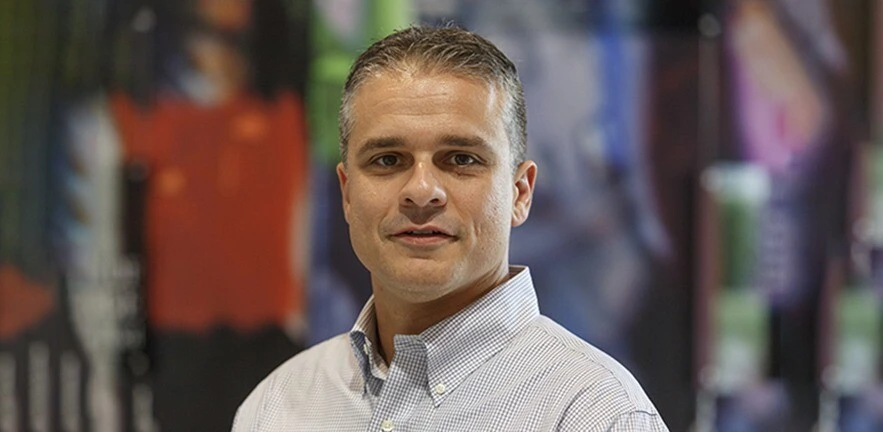The Entrepreneurship Centre (EC) has been leveraging research insights and collaborations to help new startups get going and grow for many years now. This has been their main way of generating impact both locally and globally and has contributed to the thriving of the Cambridge Silicon Fen.
Helping entrepreneurs from idea generation to growth
The key strength of the Entrepreneurship Centre is its set of programmes that, together, support different stages of the entrepreneurial journey, from developing the initial idea, to translating that into something tangible, to understanding the elements needed for the business to grow.
Aspiring entrepreneurs can start interacting with the Centre and with peers through Enterprise Tuesdays, a bi-monthly series of networking events where successful entrepreneurs and other key influential players (eg VCs) share their perspectives and stories. For aspiring entrepreneurs, who are students and post-docs of the University of Cambridge or women, access to training and peer networks is also available through Enterprise TECH and Enterprise Women programmes respectively.
Entrepreneurs that are already working on a startup idea can benefit from Venture Creation Weekends, a 54-hour programme where entrepreneurs work in groups to developing those ideas voted as the most promising ones, or from Ignite, an annual one-week programme, where global startups in tech and science get matched with an industry expert and develop their idea. Alternatively, they can enrol into the Master of Studies (MSt) in Entrepreneurship, which recently spun out of the Centre. The Masters provides a mix of lectures, training sessions and practical activities helping entrepreneurs and intrapreneurs to acquire new skills and a more in-depth understanding about how they can continue developing their venture.
Finally, those entrepreneurs looking to grow their organisation can participate to Accelerate Cambridge, a structured cohort-based programme providing training, regular coaching and mentoring, as well as access to shared workspace; or to the Strategic Business Growth Programme, a bespoke offer, where entrepreneurs and business leaders hone their managerial skills and acquire deeper insights to effectively design their companies’ journey to growth. Together, these programmes have supported hundreds of ventures, helping them to create new jobs and raising significant investment. For example, Accelerate Cambridge hosted 235 ventures, which contributed more than 588 new jobs and raised over £263 million in investment.
Linking research and entrepreneurship
Research is embedded in anything that the Centre does. As many insights deriving from research as possible are included in the MSt in Entrepreneurship, either through lectures or case studies, and in the various programmes that EC runs. Startups and scale-ups require a transformational approach to succeed and academic research can provide the necessary insights and skills to achieve it. For example, the research conducted by the faculty and researchers associated to the Centre has analysed the transformative business models that help a business succeed, the changes needed to remain financially sustainable over time, and the principles underpinning effective managerial decision-making.


High-impact research is constantly being undertaken at EC itself to leverage the opportunity to study entrepreneurship and growth while they happen, in order to develop new, globally-relevant, knowledge. Research at EC currently focuses on 3 core themes: understanding the antecedents of entrepreneurial activity leading to growth; analysing patterns of decision-making and teamwork in entrepreneurial startups, and evaluating the impact of incubators and accelerators in the entrepreneurial ecosystems. Additionally, the 3 academic co-directors of the Entrepreneurship Centre, Professor Stelios Kavadias, Dr Matthew Grimes and Dr Jeremy Hutchison-Krupat, are doing research projects on new product development, social change through entrepreneurship and the implementation of innovation strategies.
Recently, the Centre joined forces with the Behavioral Insight Team, and Tech Nation, to explore the efficacy of online digital training and peer-to-peer learning in helping UK small- and medium-sized business (SMEs) to adopt better management system in response to the COVID-19 (coronavirus) pandemic and to boost their business performance in the post-pandemic economy. This collaborative project was commissioned by the UK government and funded with the award of £350,000.
Creating collaborations with external partners to bring added value
While leveraging research insights to offer the most up-to-date and transformational advice to entrepreneurs, EC also enhances its impact through long term collaborations with multinational corporations interested in supporting entrepreneurship, such as AstraZeneca, Barclays and Santander, as well as large charities such as Cancer Research UK. These organisations provide not only funds but also ideas, opportunities for entrepreneurs to connect and learn about what is happening in sectors they are interested in, and to understand better what it takes to succeed from those who made it. In return, they can access talent and ideas, identify potential partners and opportunities for the future and be involved in the field-leading research that the centre creates.
The virtuous circle between entrepreneurship training and research has made the Entrepreneurship Centre a centre of excellence.


